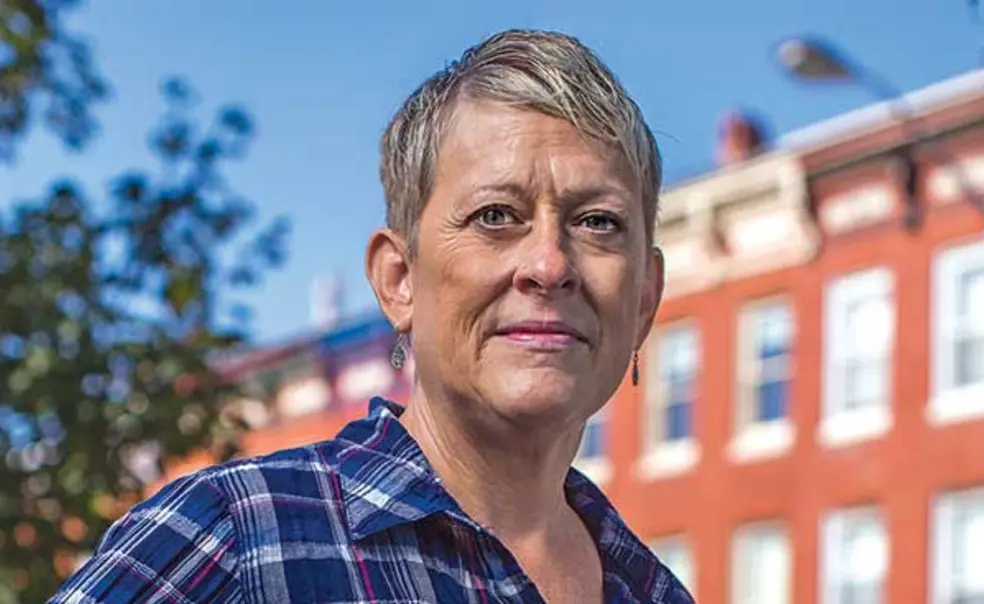Sociology: Researchers Hit the Road to Reveal Factors Determining Economic Mobility
Economic mobility is on the decline in the United States. While 90 percent of children born in 1940 ended up earning more than their parents, that figure was just 50 percent for those born in the 1980s. Starting this summer, a major research project — spearheaded by Princeton professor Kathryn Edin and academics at Stanford and Georgetown — will interview thousands of people in all 50 states to learn why people in some communities thrive while others do not.
“We are the most economically segregated we have ever been in our history,” says Edin, a professor of sociology and public affairs. And despite decades of research into poverty, “we simply don’t understand why some places tend to be a springboard for mobility and others so profoundly relegate people to be stuck in place. We’ve had a one-size-fits-all policy structure, but we’re not sure that approach is working.”
Edin has spent three decades researching American poverty, employing intensive fieldwork to create nuanced accounts of how economic hardship affects communities nationwide (see PAW story in the Oct. 24, 2018, issue).
The American Voices Project will send research fellows to 200 communities for detailed interviews with members of 5,000 households. A random sample will be weighted to include households in “average poverty” (earning about $24,000 a year for a family of four), “deep poverty” (earning about $12,000 a year), and “extreme poverty” (earning less than $2 a day), as well as a middle-income comparison group.
Eighty research fellows are being selected from more than 1,600 applicants. In an approach modeled after the Peace Corps, the fellows will receive intensive training and modest pay, moving seven times over the course of a year. “The secondary goal of the project is to enrich the pipeline of people going into academia and public service,” Edin says.
The researchers will ask people in those seven locations about their employment, health, family relationships, daily routines, civic engagement, and political beliefs. The data will be public so researchers, politicians, and others can use it. The project is a joint initiative of the Stanford Center on Poverty and Inequality, Princeton’s Center for Research on Child Wellbeing, the American Institutes for Research, and a coalition of Federal Reserve banks.
The project leaders hope to follow the families they interview in the coming years through federal data, if they receive permission. The research may continue past 2020 if more funding is awarded to the program.
Edin will accompany researchers at several locations, visiting with families in Alabama, Mississippi, and other states so she can listen to their stories firsthand: “We really have to hear from people who are struggling and understand their struggles in their local context.”












2 Responses
Mark Ramsay ’76
6 Years AgoAddressing Appalachian Misery
How will a new study effect change? Studies have already been done. Congresspeople from those districts still haven't done anything remarkable. See the studies referenced in Hillbilly Elegy by Appalachian born and bred Yale law grad J.D. Vance.
How can a people thrive when the mountainous land only can support mining, minor industry, and a bit of farming? When mining died down, people resorted to what many distressed people resort to: alcohol and drugs.
I grew up near Appalachia. I recall an elementary school trip to a wood toy-making factory in the Appalachians in the early 1960s. I recall a boy my age, barefoot, was working at a station. It was a sad sight.
The misery of Appalachian people is being addressed partially by the Christian Appalachian Project (CAP). Read their short book, An Appalachian Journal. The book makes one believe it would be more useful to use federal funds to pay for volunteer expenses and the materials for rebuilding Appalachian homes and public facilities.
Kai L. Chan *08
6 Years AgoMeasuring Mobility
The article on economic mobility (Life of the Mind, May 15) seems to confuse economic mobility with economic growth. Most economists measure economic mobility as intergenerational movement along the income-distribution ladder (rather than by absolute incomes). That is, to what extent do offspring track their parents’ position on the income-distribution ladder at similar age profiles.
The fact that 90 percent of children born in 1940 ended up earning more money than their parents was a result of a post-war economic boom whose gains were broad across the population. That only 50 percent of those born in the 1980s earn more than their parents is largely because median income has stagnated since about 1980 in spite of growth in average income, due to increasing income inequality; i.e. growth has been mostly captured by the elite.
Yes, economic mobility is lower now than before, but this is expressed through what economists call the income beta: how well an offspring’s position in income distribution is predicted by their parents’ standing. A higher beta (lower mobility) — what we see now relative to the past — means (broadly speaking) that those born poor stay poor, and those born rich stay rich.